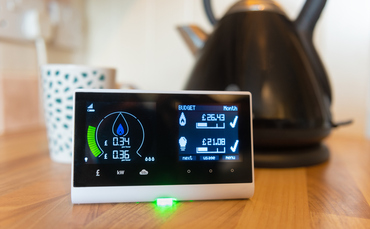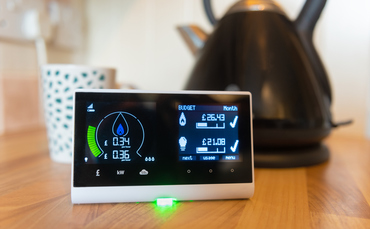Top universities launch new £8m home energy data project – BusinessGreen
Energy Disrupter

The University of Oxford and University College London (UCL) have announced they are launching a new £8.7m research project dedicated to establishing a national energy data platform to facilitate the country’s transition to net zero emissions.
The universities said in an announcement this week that the programme will last for five years and is being funded by the Engineering and Physical Sciences Research Council.
The data platform, known as the Energy Demand Observatory and Laboratory (EDOL), will track energy use in UK households to provide a better understanding of how, why and, when domestic activity impacts energy demand and associated carbon emissions, the universities said.
Energy use in homes is responsible for almost a fifth of the UK’s carbon emissions, as well as being the biggest driver of increased energy demands during periods of peak pressure on the grid.
It is widely accepted that if the UK is to reach net zero emissions by 2050, homes will have to stop using natural gas and instead transition to low-carbon heating systems. However, the universities said there is currently “very little” information on how the shift towards cleaner technologies will impact patterns of energy usage and how changes in demand will overlap with other changes in the UK’s energy system, such as the uptake of electric cars and the increased reliance on renewables.
The EDOL will use artificial intelligence (AI) and Internet of Things (IoT) technologies to monitor the energy used by different appliances and the different energy-using activities which make up daily life at home, the universities explained, providing a granular understanding of how emerging clean technologies will impact domestic energy demand.
“EDOL will raise evidence-based policy making to a new level, by providing a scientifically rigorous demand observatory,” said Dr Philipp Grünewald, University of Oxford, who is leading the research.
“This collaboration will be unique in providing a detailed, longitudinal resource of UK domestic energy use which will be available to scientists, industry, and policymakers. The research will be dynamic, able to respond to a fast-moving technological and policy landscape, and will enable us to propose cost-effective smart data solutions and innovation in real-time and at scale.”
Dr Tina Fawcett of the Environmental Change Institute at the University of Oxford, who will the lead the social research aspect of the project, called it a “really important, long-term investment in energy demand research”.
“It will enable us to understand current and future household energy use as never before,” she said. “It will provide insights into the myriad influences on energy demand – from housing conditions, energy prices and heating systems to personal values, capabilities and behaviours.”
Clean tech advocates have long argued that the adoption of energy efficiency upgrades and clean technologies such as solar panels, heat pumps, smart meters, and energy storage systems will be critical to the delivery of a zero emission grid that is largely reliant on renewable power. But there is relatively little granular detail on how such technologies will impact demand in practice and how people will use new technologies to maximise cost savings and comfort.















